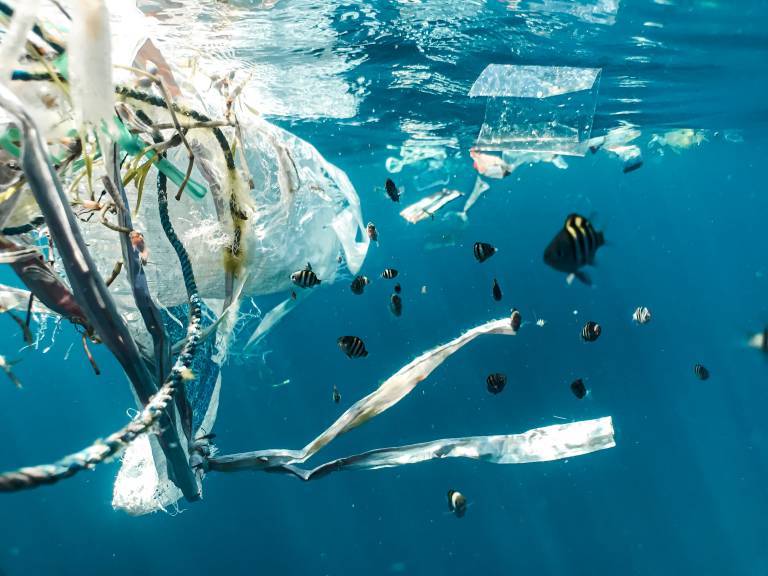CALL FOR PAPERS - UCL Anthropocene and SHS Health, Mind and Society’s workshop, Chemical Exposures
30 March 2022
'Chemical Exposures' workshop is a joint partnership between UCL Anthropocene and UCL Health, Mind and Society, which will take place 9-11 June 2022. Deadline for abstracts: 22 April 2022

University College London, 9 th -11th June 2022
Organisers
- Professor Sahra Gibbon, UCL
- Professor Andrew Barry, UCL
- Emilie Glazer, UCL
Keynote speaker
Professor Michelle Murphy, University of Toronto
Deadlines
Please send us your abstracts by the 22nd April 2022. We will send notifications of acceptance the following week. Call for papers: The chemical composition of environments and bodies have been transformed in the recent past, reflecting changes in agricultural production and the expansion of the extractive, petrochemical and nuclear industries. However, while there is now widespread public recognition of the pervasiveness of exposure to toxic chemicals, in the air, soil, and water, the study of chemical exposure remains relatively marginal to the social sciences. This workshop brings together diverse research communities to build on a developing interdisciplinary field of research and reflect upon the impact and implications of the chemical transformation of the planet for health, well-being, justice, and livelihoods. The workshop builds on the ongoing work of the Chemical Exposures group of UCL Anthropocene, which is drawn from across the Departments of Anthropology, Geography, Science and Technology Studies, and Public Health at UCL.
Key questions we aim to explore in this workshop include:
- What conceptual frameworks from across the social science (and beyond) are relevant to addressing the geographical, temporal scale and impact of chemical exposures?
- How can we better address questions of embodiment, racialisation, materiality, care and kinship, and ongoing forms of colonialism in this context?
- How can we understand and intervene on the long-standing inequalities and questions of social and environmental justice that mark the terrain of chemical exposures?
- How can we develop collaborative projects between social and natural scientists, artists, and local communities to monitor and address instances of chemical exposure?
- What conceptual and methodological challenges does the study of chemical exposures pose more broadly?
Proposals and conference information
We welcome proposals that take one of three forms.
- Research presentations of approximately 20 mins. These may be presented face-to-face at the workshop in UCL or via zoom.
- Interdisciplinary conversations or round tables focused on specific problems or projects.
- Walking tours or site visits in London or nearby locations in south-east England.
We particularly welcome contributions that involve collaborations across the disciplines, as well as collaborations with researchers beyond the university.
If you would like to propose a paper, conversation or walk please send us an abstract of 150-200 words by 22nd April.
The workshop will begin on the afternoon/evening of 9th June and continue through the 10th June and morning of the 11th June.
Financial support
The conference is supported by the Dean’s fund of the Faculty of Social and Historical Sciences. Attendance at the conference, including lunch, will be free. In addition, we have limited funds to support Early Career Researchers who require support to travel to London.
Please send abstracts to
Emilie Glazer, Sahra Gibbon, Andrew Barry
For further details please contact, UCL Anthropocene strategic projects officer, Zoë Paskett:
 Close
Close

